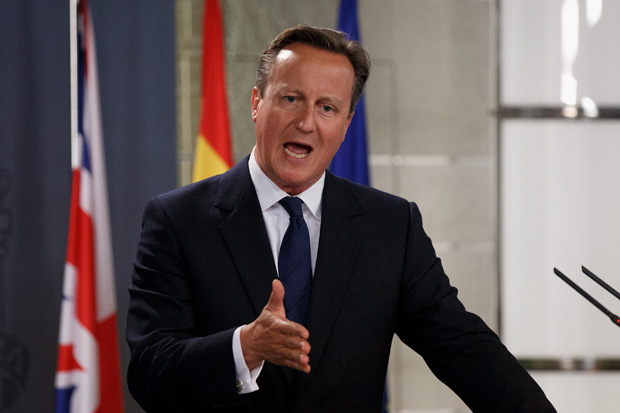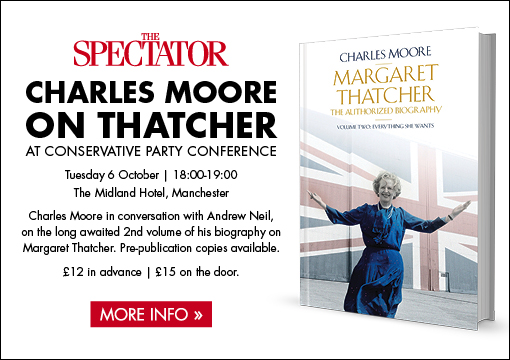Presumably Britain has some sort of policy on immigration, asylum and refugees, but instead of struggling to understand it, you can save time by following its media presentation, since that is what seems to concern the government most. Essentially, the line is that Labour lets them all in and the Tories don’t and won’t (‘No ifs, no buts’). When, as at the last election, it turns out that net immigration has been rising under David Cameron, he apologises shyly and sounds tough again. He was sounding very tough until last week, when the photograph of the dead boy on the Turkish beach suddenly turned him all soft. This Monday, his tone was compassionate and he said he would let more refugees in, but tried to cheer up his party’s hard men by announcing in the same statement that he had ordered the death last month of a couple of British jihadis in Syria. It was put about by government sources (though not stated by Mr Cameron in Parliament) that the jihadis had been trying to kill the Queen. Presumably it was not a coincidence that this briefing took place two days before Elizabeth II became the longest-reigning monarch in our history, so patriotic feeling could be played on. We have no idea what, if anything, the dead men actually did to plan regicide. Meanwhile, it still seems to be weirdly hard for Afghan interpreters, who really have risked their lives for British forces, to be let into this country. These almost daily tergiversations are quite shaming.
In Islam, the concept of the ‘ummah’ is important. It describes a supranational community of the faithful. Extremists often attempt to mobilise it against national regimes which they dislike. Why, when issues of migration arise, do Muslim leaders not call more loudly for the ummah to help Muslim refugees? It is usually Muslim lands which they flee.
Arguing for assisted dying of the very ill, people often say, ‘I wouldn’t let my dog live like that.’ This sounds a powerful point, but is it? As someone complicit in the euthanasia of our much-loved dog a few years ago, I can confirm that it was traumatic; and although we still think it was the right decision, it evoked feelings of guilt which are hard to shake off. In assisting the death of a person one loves, such feelings would be infinitely more disturbing, because a person is profoundly different from a dog. It may sound perverse, but it is precisely because we see human autonomy as being of a different order from the autonomy of an animal that we think it right to tolerate higher levels of human suffering. We are not mere animals, and we therefore have the joys and sorrows which come from this fact. If we start killing people, or helping people to kill themselves, out of kindness, we are coming to think of them more as animals, less as people.
A reader writes to point out that if assisted dying is introduced, life insurance companies will presumably not pay out for it, since it is a form of suicide. I hope this consideration will fortify the minds of unhappy sick people, made to feel bad for ‘being a burden’, and make impatient relatives pause.
On the Radio 4 programme The Life Scientific last month, Professor Sir Godfrey ‘Geoff’ Palmer, was celebrated. He is an acclaimed professor of brewing and distilling, Britain’s first. Interviewed on the programme, he related how, in the 1960s, when applying to do an MSc in agriculture at Nottingham University, he was interviewed by a panel. This included a Ministry of Agriculture representative, because the course attracted ministerial subsidy. This representative, said Professor Palmer, was Sir Keith Joseph MP, ten years later the main supporter of Margaret Thatcher for the Conservative leadership. According to Palmer, Joseph asked him if he could tell the difference between wheat and barley. He said no. At which point, Joseph suggested he ‘should go back where you come from and grow bananas’. Actually, Geoff Palmer came from Haringey, but he is black, born in Jamaica. The interviewer, Jim Al-Khalili, let out a gasp of horror at Sir Keith’s racist words. As well he might, but I wonder if Professor Palmer’s story can be true. The incident was not dated exactly but would appear to have taken place in 1964 or 1965. Until October 1964, Sir Keith was Secretary of State for Housing and Local Government; he was never in the Ministry of Agriculture. After that, he was in opposition until 1970. I cannot find that he had any position with Nottingham University either, though I suppose it is not impossible. One must also doubt the tale because it is quite out of character. Joseph was exceptionally opposed to race prejudice, and indeed was the only member of Ted Heath’s shadow cabinet to refuse to vote against the Labour government’s Race Relations Bill in 1965. I am sure that Professor Palmer is not making his story up, but has he confused someone else with Sir Keith? It matters, because there is a tendency now to let dreadful things (e.g. paedophile claims) be said about dead cabinet ministers, especially Tory ones, without bothering to check them. The bananas story is firmly in Joseph’s Wikipedia entry. Can Professor Palmer confirm it with absolute confidence?
Now that the House of Lords is overwhelmingly appointed, the only bit of it that is answerable to anyone is the hereditary fraction. Each party elects from its own hereditaries. Among the largest group, the Conservatives, there is a brisk rate of by-elections as those originally chosen die off. In the coming one, the Duke of Wellington is the favourite, and thus the leading representative of the democratic process — a family first, made possible by the great constitutional reformer Tony Blair.
It was heroic for the BBC’s adaptation of Lady Chatterley’s Lover to change the subject from sex and concentrate instead on class distinctions, but definitely, given the book’s intention, odd. Next — for Countryfile perhaps — ‘How good a gamekeeper was Mellors?’
Got something to add? Join the discussion and comment below.
Get 10 issues for just $10
Subscribe to The Spectator Australia today for the next 10 magazine issues, plus full online access, for just $10.
You might disagree with half of it, but you’ll enjoy reading all of it. Try your first month for free, then just $2 a week for the remainder of your first year.
















Comments
Don't miss out
Join the conversation with other Spectator Australia readers. Subscribe to leave a comment.
SUBSCRIBEAlready a subscriber? Log in